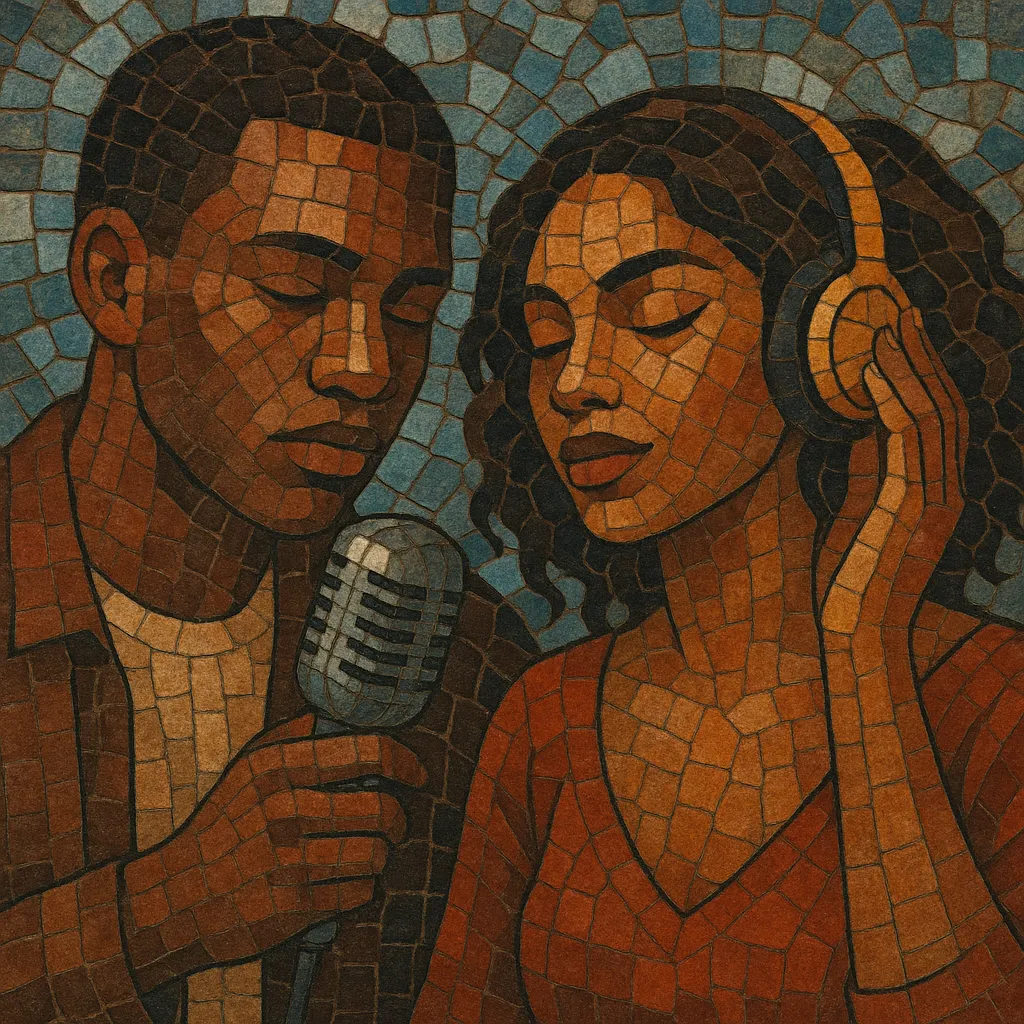French R&B (R&B français) is a francophone take on contemporary R&B that blends sleek, groove‑driven production with French pop sensibilities and urban slang. It typically features smooth, melismatic vocals, mid‑tempo rhythms, and lush harmonies, while drawing on hip‑hop’s drum programming and featured rap verses.
Shaped by France’s multicultural scene, the style often integrates influences from raï and zouk as well as US new jack swing and neo‑soul. Lyrics commonly explore love, vulnerability, empowerment, and everyday city life, delivered in conversational French (sometimes with verlan, Arabic, Lingala, or English code‑switching). Since the 2010s, the sound has increasingly absorbed Afrobeats/afropop grooves and trap‑era textures, widening its appeal across the francophone world.
French R&B emerged in the mid‑to‑late 1990s as French artists adapted US contemporary R&B and new jack swing to local tastes. Radio and TV channels that championed urban music (and a thriving French rap ecosystem) created space for R&B hooks and vocal‑driven singles. Early adopters and crossover pop acts helped normalize R&B vocals in French, laying the groundwork for a broader scene.
The 2000s saw a first mainstream wave with artists releasing R&B‑focused albums and frequently collaborating with rap acts. Production aesthetics reflected the era’s US influences (Neptunes/Timbaland‑style syncopation, glossy synths, tight vocal stacks), while France’s diasporic communities brought in raï and zouk flavors. Compilation series and collaborations (notably the Raï’n’B Fever projects) amplified the blend, pushing R&B to top‑40 radio and club circuits across France, Belgium, and francophone Africa.
With streaming, French R&B diversified. Autotune‑assisted toplines, trap‑leaning drums, and afropop/afrobeats grooves became common, and artists found pan‑francophone audiences (from Paris to Brussels, Abidjan, Kinshasa, and Montreal). Duets with rappers remained central, while crooners and singer‑songwriters brought a softer, melodic approach. The term “pop urbaine” gained currency in France, with R&B as a key pillar.
French R&B now circulates internationally via social media and playlists, often blurring with afropop, dancehall‑adjacent rhythms, and electronic R&B. The sound remains anchored in emotive vocal delivery and sleek production, but adapts fluidly to contemporary grooves—keeping it both radio‑friendly and club‑ready.


